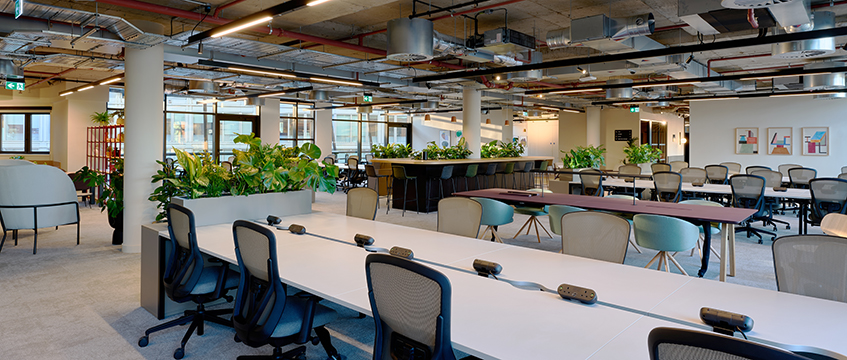Meyer Bergman’s Crossbay eyes €2bn logistics assets
Private investment firm Meyer Bergman has launched a new European last-mile logistics platform called Crossbay, which aims to build a €2bn (£1.7bn) portfolio.
The new platform targets single-tenant properties. It will be led by Marco Riva, who joined Meyer Bergman from Logicor in 2018.
Crossbay has already secured more than €500m of assets under management across Italy, France, Germany, Spain, Belgium and the Netherlands. It plans to double this over the next 12 months.
Private investment firm Meyer Bergman has launched a new European last-mile logistics platform called Crossbay, which aims to build a €2bn (£1.7bn) portfolio.
The new platform targets single-tenant properties. It will be led by Marco Riva, who joined Meyer Bergman from Logicor in 2018.
Crossbay has already secured more than €500m of assets under management across Italy, France, Germany, Spain, Belgium and the Netherlands. It plans to double this over the next 12 months.
Meyer Bergman said it is targeting gateway cities in Southern Europe such as Milan, Rome, Madrid and Barcelona.
It is also identifying opportunities in the Nordics and around London, where supply has been extremely restricted.
Existing tenants include Amazon and other “major” e-commerce companies, as well as third-party logistics providers such as FedEx and DHL.
The portfolio has an occupancy rate in excess of 97% and weighted average lease break of five years.
The firm said growth in investor interest in urban logistics has been underpinned by an imbalance between demand and supply.
It added that “increasing urbanisation, the considerable growth of online sales and the reluctance of urban planners to permit the building of warehouses over homes has exacerbated this gulf”.
Marcus Meijer, chief executive of Meyer Bergman, said: “Demand from e-commerce, online grocery shopping and third-party logistics businesses has soared in recent years. This is a structural shift. Conviction investors rightly see a return premium given the lower level of risk in this property type coupled with continued growth in occupier demand.
“We are creating a long-term institutional platform that will work in parallel to our traditional value-add strategy. For the first time, pension funds will be able to access high quality assets, with grade A occupiers managed by an institutional-grade operator.
“Although we began our last-mile journey in 2018, Covid-19 has highlighted how integral urban logistics are to all aspects of life. As companies look to reassess their supply chains, we will see significantly enhanced investment targeting this area.”
Riva said: “More than ever, retailers need to be close to their customers, so that is why tenants are willing to sign up to longer leases and pay competitive rents for well-located space. Last mile deliveries make up a significant proportion of retailers’ costs, and every mile and every minute’s delivery time creates expense.
“Online shopping will grow substantially across Europe, including in southern European markets such as Italy and Spain where e-commerce penetration has traditionally been lower. In addition, the just-in-time inventory models that failed to adequately supply consumers and governments during the Covid-19 pandemic will also be re-evaluated. This will all lead to a substantial growth in demand as Europe structurally realigns its retail and supply chain networks.”
To send feedback, e-mail pui-guan.man@egi.co.uk or tweet @PuiGuanM or @estatesgazette










